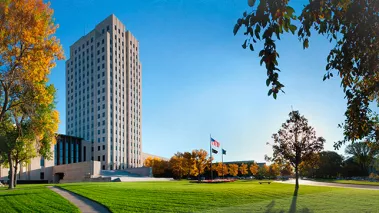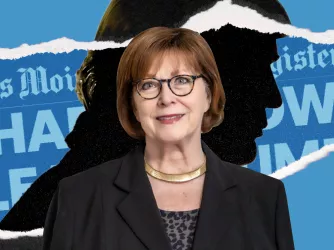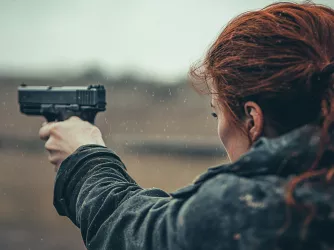Table of Contents
North Dakota Bill Would Protect Student Press Across the State

North Dakota’s John Wall New Voices Act—House Bill 1471—would provide critical protections for student press in public high schools and colleges, as well as many private institutions of higher education, throughout the state. As the bill advances, FIRE commends those advocating its passage and working (quite fittingly, during Free Press Week) to ensure that student press can continue to be a powerful tool, resource, and educational experience for students.
In 1988, the Supreme Court delivered a blow to high school student journalists in the form of Hazelwood School District v. Kuhlmeier. In Hazelwood, the Court held that high school students’ First Amendment rights were not violated by the school exercising control over the content of a newspaper produced as part of a journalism course, “so long as their actions are reasonably related to legitimate pedagogical concerns.” Unfortunately, some courts have applied the case broadly, as the Student Press Law Center (SPLC) details on its website.
Even more worryingly, the U.S. Court of Appeals for the Seventh Circuit applied Hazelwood to college students in Hosty v. Carter (2005), opening the door for adults entitled to full First Amendment rights to be censored and regulated as though they were children.
SPLC urges free speech and free press advocates to “Cure Hazelwood”—and Hosty—by passing legislation that explicitly grants student journalists the same freedom of expression that they would have outside school. Thankfully, some states have already done so. FIRE hopes North Dakota will be next in line, and we’re not alone. On Tuesday, student journalists, professors, and other free speech advocates—including Mary Beth Tinker of the landmark Supreme Court free speech decision Tinker v. Des Moines Independent Community School District (1969)—spoke to the House Education Committee in support of the bill.
The John Wall New Voices Act (named to commemorate an esteemed Wahpeton High School English and journalism teacher) contains three sections, governing public high schools, public colleges, and private colleges, respectively. The bill would give students at public high schools and colleges the right to exercise control over the content of student school-sponsored media, and it states that student journalists may not be censored or punished except for content that is otherwise prohibited under the law (such as true threats or incitement). The bill effectively provides the same rights to students at private colleges and universities, except those controlled by a religious organization to the extent that applying the bill to that institution “would not be consistent with the religious tenets of the organization.”
FIRE knows all too well that without legislation like the New Voices Act, student journalists across the country are routinely intimidated, censored, or subjected to investigation simply for trying to provide information to their classmates or comment on matters of public concern.
Check back for updates on The Torch as this bill makes its way through the North Dakota Legislative Assembly.
Recent Articles
FIRE’s award-winning Newsdesk covers the free speech news you need to stay informed.

FIRE’s defense of pollster J. Ann Selzer against Donald Trump’s lawsuit is First Amendment 101

Cosmetologists can’t shoot a gun? FIRE ‘blasts’ tech college for punishing student over target practice video

China’s censorship goes global — from secret police stations to video games
